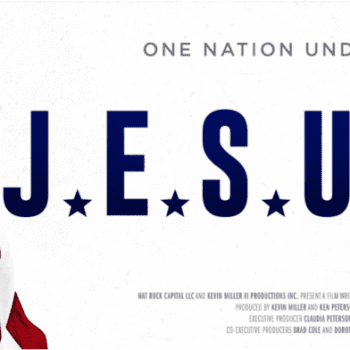 How do we make sense of the senseless and tragic violence committed by militants at the headquarters of the satirical magazine Charlie Hebdo, especially when that violence is committed in the name of Allah?
How do we make sense of the senseless and tragic violence committed by militants at the headquarters of the satirical magazine Charlie Hebdo, especially when that violence is committed in the name of Allah?
Suzanne Ross, my colleague at the Raven Foundation, calls the violence at Charlie Hebdo a sacred tragedy. Now, we generally associate “the sacred” with religions, but Suzanne clarifies that you don’t have to be religious to hold something sacred. In fact, whether we are religious or not, we all hold something sacred. That “something” is our identity. And, tragically, the sacredness of our identity – whether religious or secular – is usually formed in opposition to others. Referring to René Girard’s mimetic theory, Suzanne writes:
… the sacred is any belief that creates identity and cohesion within a group over and against outsiders. In other words, the sacred protects a community from its own violence by designating the proper enemies one can hate, ridicule, satirize, and kill without remorse. Indeed, to do so is a sacred duty.
We are all influenced by this sacred identity that unites “us” against “them.” Here we see that the sacred is connected to the violent principle of accusation and blame. As Suzanne explains, everyone thinks their violence is a good and sacred duty, while they accuse their enemy’s violence of being evil and profane.
In light of the tragedy at Charlie Hebdo, many Christians are accusing Islam of being fundamentally violent. In doing so, they unwittingly fall into the trap of creating a sacred identity that pits “us” against “them,” which only adds fuel to the fire of sacred violence. The good news is that the Qur’an warns us against this tendency, and it also provides an alternative way of forming identity.
In fact, the Qur’an has a very specific term for creating identity through violence and accusations: that way of creating identity is literally called hell.
This is how [hell] will really be: the inhabitants of the Fire will blame one another. (38:64)
In the Quran, hell is a way of life that creates identity through the sacred violence of blaming and accusing one another. These accusations are mimetic; that is, we instinctively imitate each other’s accusations until everyone is pointing fingers at each other. This creates a mimetic crisis throughout our culture. Actually, as we are seeing, the mimetic crisis is spreading throughout our world. Any time we engage in blame, accusations, and scapegoating we only drive ourselves deeper into the pit of hell.
The specific tragedy at Charlie Hebdo is indicative of the larger tragedy that the world faces: a crisis of forming identity in violent opposition to one another. At some point, someone had better stop the cycle of forming identity through opposition. We had better stop accusing one another or we will create a future of more hells on earth. And if we don’t find a solution soon, with increased weapons of mass destruction, we may not have a future.
Fortunately, Islam not only provides the warning of hell that critiques forming identity through sacred violence and accusations, but it also provides the alternative. “Good and evil cannot be equal,” says the Qur’an. “Repel evil with what is better, and your enemy will become as close as an old and valued friend” (41:34).
How does someone stop the mimetic cycle of accusation by repelling “evil with what is better”? Muhammad provides many nonviolent examples throughout his life, but one example has been shared frequently since the violence at Charlie Hebdo. Every day that Muhammad went to his mosque, he walked by an elderly woman’s home. When Muhammad walked by, she did something far more insulting than draw silly pictures of him. She threw her garbage on him. She, along with others in her community, created an identity in opposition to Muhammad, accusing him of ruining their culture. Muhammad not only challenged the polytheism of his day, but what made the woman and many others really angry was that he demanded that the rich care for the poor. Muhammad’s message of social justice was directly connected with his religious message of the oneness of God. Muhammad brought the radical message to his culture that God cares for the weak, the oppressed, and the marginalized. Like the prophets before him, this message of social justice made him a target for his enemies to unite against him in sacred violence and accusations.
But Muhammad refused to descend with the woman into the pit of hell. Instead of responding to her insults with mimetic violence, he repelled “evil with what is better.” Day after day, he patiently walked by her, until one day she stopped. Surprisingly, Muhammad didn’t think, “Oh good! That nasty woman stopped!” Instead, he was concerned about her well-being. He asked permission to visit her. When he entered her house, he discovered that she was very ill. He cared for her needs and helped her recover. Here’s the remarkable thing: when he was insulted, Muhammad repelled evil with what was better, and he and the woman became friends.
So, please, in the wake of violent tragedies, let’s not descend ourselves further into the pit of hell by blaming one another. Let’s not create identities through the sacred violence of accusation. Instead, let’s take Muhammad as an example. Let’s take responsibility to form identities by finding creative ways to “repel evil with what is better.” That’s our best hope for a more peaceful future.
(For a Muslim’s response that critiques violence, see “Why the Prophet Muhammad Would be Deeply Troubled by the Charlie Hebdo Attacks” by Ro Waseem at the blog “A Reformation of Muslim Thought.”)











